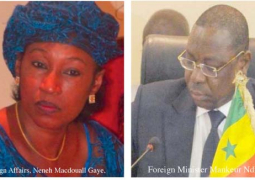The following verses uphold this calibrate conception, which recognizes the inner substance of religion inherent in all revealed religions, on the one hand, and affirms the necessarily of abiding by the dictates of one particular religion, on the other:
For each We have appointed from you a Law and Way. Had God Willed, He could have made you one community. But that He might try you by that which He hath given you [He hath made you as you are]. So vie with one another in good works. Unto God ye will all return, and He will inform you of that wherein ye differed (5:48)
Unto each community We have given sacred rites (mansakan) which they are to perform; so let them not dispute with thee about the matter, but summon them unto thy Lord (22:67)
These diverse laws, paths, and rites, however, ought not obscure the fact that the religion ordained through the last Prophet is, in essence, the very same religion as that ordained through all previous prophets:
He hath ordained for you of the religion that which He commended unto Noah, and that which We reveal to the thee [Muhammad], and that which We commended unto Abraham and Moses and Jesus, saying: Establish the religion, and be not divided therein (42:13).
This is the verse quoted by Ibn 'Arabi in the citation above; after quoting it, Ibn 'Arabi refers to a passage in the Quran which mentions the prophets Abraham, Isaac, Jacob, Noah, David, Solomon, Job, Joseph, Moses, Aaron, Zachariah, John, Jesus, Elias, Ishmael, Elisha, Jonah, and Lot, and which ends with the words: "Those are they whom God guideth, so follow their guidance" (6:90). Ibn 'Arabi adds: "This is the path that brings together every prophet and messenger. It is the performance of religion, scattering not concerning it and coming together in it." Again, what is bring stressed here is quintessential religion, al-din.
The "Islam" revealed to the Prophet Muhammad is unique, and thus a religion; but at the same time, it is identical in its essence to all religions, and is thus the religion; in other words, it is both such and such a religion, and religion as such. "Establish the religion, and be not divided" (42:13), for "naught is said unto thee (Muhammad) but what was said unto the Messengers before thee" (41:43). In another important verse, used above as our epigraph, we are given a succinct definition of what constitutes this inner, essential religion. The verse also stands out as one of the most significant proof-texts in the Quran for upholding the principle that access to salvation is not the exclusive preserve of the particular religion of Islam that is, the specific Law and Way ordained through the last Prophet. On the contrary the description given here of that which is necessary for salvation gives substance to the universal definition of Islam that we are trying to bring out here:
Truly those who believe, and the Jews, and the Christians, and the Sabeans-whoever believed in God and the Last Day and performed virtuous deeds-surely their reward is with their Lord, and no fear shall come upon them, neither shall they grieve (2:62).
It was seen above that the number of prophets is given indefinite extension by verse which mention several by name and then add, "We sent Messengers before thee; among them are those about whom We have told thee, and those about whom We have not told thee" (40:78). Likewise, in the preceding verse, the explicit mention of four distinct groups-those who believe, referring to Muslims in the particular sense, alongside the Jews, the Christians, and the Sabeans-is indefinitely prolonged by the universal category comprising "whoever believed in God and the last Day and is virtues". In a moment, we shall return to this crucial and controversial position, one which holds out the possibility of salvation beyond the confines of Islam qua particular religion. At this point, however, attention should remain focused on the ramifications of this "essential religion" of faith in God and in the Hereafter, allied to virtue.
The following verse is akin to a veritable creedal affirmation:
The Messenger believe in that which hath been revealed unto him from his Lord, and (so do) the believes. Every one believeth in God and His angles and His scriptures and His Messengers-we make on distinction between any of His Messengers (2:285).
What should be underscored here is the fact that belief in all the revealed scriptures is followed by the declaration that no distinction can be made between any of God’s Messengers. Again, there is the recognition of the formal diversity of revelation combined with the affirmation of a unique message.
In the Quran, this universal religion, or religion as such, which resists any communal specification, is often referred to as the religion of Abraham, al-bunif, "the devout". Abraham stands forth as both the symbol and the concrete embodiment of pure, monotheistic worship: "he was not one of the idolators". In the following verse, also from the Sura al-Baqara, we read:
And they say: Be Jews or Christians, than ye will be rightly guided. Say Nay but [we are of] the religious community (milla) of Abraham, the devout (hanifan), and he was not one of the idolators (2:135).
Then, in the verse immediately following this one, one finds a description of what affiliation to this millia, or religion community, entails:
Say: We believe in God, and that which was revealed unto Abraham, and Ishmael, and Isaac, and Jacob, and the tribes, and that which was given unto Moses and Jesus and the prophets from their Lord. We make on distinction between any one of them, and unto Him we have submitted (2:136; this verse is almost identical to 3:84).
After this comes another important verse, which reinforces the interpretation of religion as universal submission:
And if they believe in the like of that which ye believe, then they are rightly guided. But if they turn away, then they are in schism (2:137).
The next verse is also highly relevant to our theme. It begins, mysteriously, with a reference to the colour of God (sibghat Allah). Pick hall renders the verse thus, making explicit what he sees as intended by the ellipse: "(We take our) colour from God; and who is better than God at colouring? And we worship Him" (2:138). The verses immediately following this one suggest what this "colour" might mean:
Say: Dispute ye with us concerning God, when He is our Lord and your Lord? Ours are our works, and yours your works. We are devoted purely to Him. Or say ye that Abraham, and Ishmael, and Isaac, and Jacob, and tribes were Jews or Christians? Say: Do you know best or both God? (2:139-140)
To be Continued.



